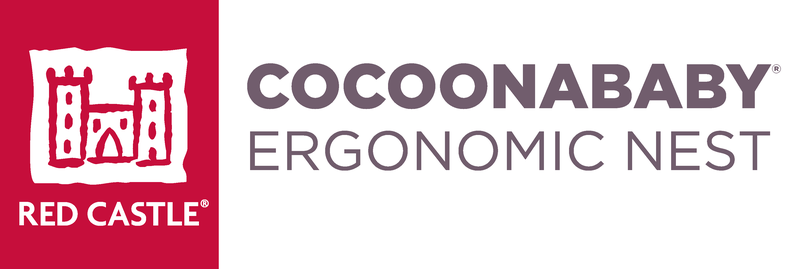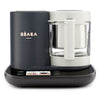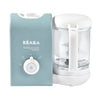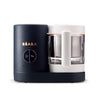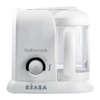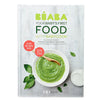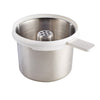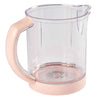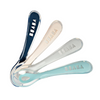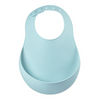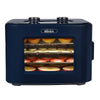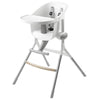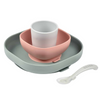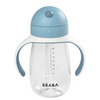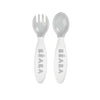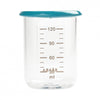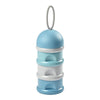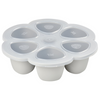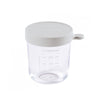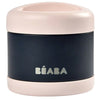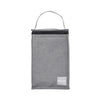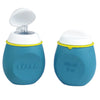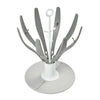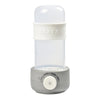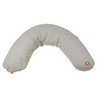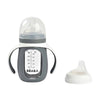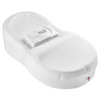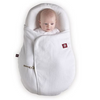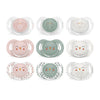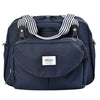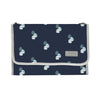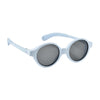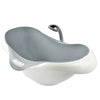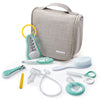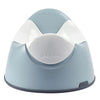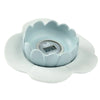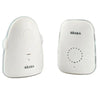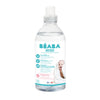Kelly Benton – Pregnancy & Baby Nutritionist
As a parent, ensuring your baby gets the best nutrition is a top priority. Being a parent of two young children myself, I can understand why baby food pouches have become a popular choice for many. These convenient, easy-to-use pouches offer a quick solution for feeding on the go. However, as a Nutritionist, there are several reasons why these are not a regular part of my kids’ diets. Let's take a closer look at the benefits and drawbacks of baby food pouches to help you make an informed decision.
Pros of Baby Food Pouches
Convenience:
- Baby food pouches are incredibly easy to use. They don't require a spoon or bowl, making them perfect for on-the-go feeding.
- Portability: The compact size of pouches makes them easy to carry in your bag. They are ideal for travel, especially air travel given they taken up little space and most don’t require refrigeration.
Less Mess:
- Pouches are designed for minimal mess. Babies can self-feed directly from the pouch, reducing the need for clean-up.
- They also come with resealable caps, allowing you to store unfinished portions without spills.
Long Shelf Life:
- Pouches often have a longer shelf life, making them a reliable option to keep on hand for meal emergencies.
Cons of Baby Food Pouches
Limited Textures:
- Pouches typically contain pureed food, which can limit your baby's exposure to different textures. Learning to chew and handle varied textures is crucial for oral motor skill development. Guidelines recommend offering increasingly complex textures, aiming to transition to family foods by around 12 months of age (if not sooner)3.
Overprocessing:
- Nutrient Loss: The processing methods used to extend the shelf life of pouches can result in the loss of valuable nutrients. As an example, a recent study of Australian infant pouches found that the majority of products don't meet the NHMRC recommendations and none reported iron content or fortification with iron (which is alarming considering the importance of iron for this age group)1.
- Additives and Preservatives: Some pouches may contain additives or preservatives to maintain freshness, which might not be ideal for all parents.
Hidden Sugars:
- The same study reported almost 73% of products contained sugar in the form of added sugar, fruit puree or juice, with the highest level of sugars being found in products targeted to babied from 4 months old1. The Australian Infant Feeding Guidelines recommend limiting foods with added sugar for babies under 12 months, and not to add sugar to complementary foods, as this can influence sweet taste preferences and can lead to poor metabolic outcomes in the future3.
Reduced Interaction:
- Less Sensory Experience: Feeding from pouches can limit your baby’s exposure to real foods and the important sensory / motor learning associated with eating: Touching, smelling, and playing with food are important aspects of learning to eat. Studies show that repeated visual exposure to foods can increase their liking of foods and the ability to touch and play with food is important to promote self-feeding , which can reduce food fussiness in toddlerhood2.
- Decreased Parent-Child Interaction: Finger foods or spoon-feeding offers an opportunity for bonding and teaching your baby about food, an experience that might be reduced with pouch feeding. When offering pouches, I recommend serving the puree on a spoon to promote mindful and engaged eating. And as often as possible, eat meals together as a family to allow them to observe and learn from you.
Homogeneity:
- Similar Tastes: Many pouches have a uniform taste and texture, meal after meal. Babies miss out on the joy of experiencing the diverse flavours of whole foods, which we know is crucial in shaping their perception and acceptance of new foods, influencing their food behaviours (and ultimately future health outcomes)2.
Misleading Claims:
- Manufacturers know how to target parents with creative packaging claims, giving the perception that their product is healthy. Many of us don't have the time (or know how) to read the nutritional information panel or ingredient list, so are easily misled by these claims. One study found out of 25 infant pouches claiming meat in the product name, NONE of them had meat listed as a main ingredient1.
Ultimately, the choice of which foods to feed your child is yours. Choosing a wide variety of fresh, whole foods from each of the food groups daily will ensure they are meeting their nutrient demands. By understanding the pros and cons of baby food pouches, you can make informed decisions that contribute to your baby’s healthy growth and development.
Kelly Benton is a Nutritionist specialising in maternal and baby nutrition. She is a mother of two little ones, right there in the thick of it with you. After experiencing maternal nutrient depletion through her first pregnancy and postpartum period, Kelly saw a need to educate and empower other women to proactively take health into their hands so they can have a more positive experience. Kelly is available for 1:1 consultations, or group sessions. To book please visit her website or Instagram page.
References:
- Brunacci, K.A., Salmon, L., McCann, J., Gribble, K., Fleming, C.A.K. (2023). The big squeeze: a product content and labelling analysis of ready-to-use complementary infant food pouches in Australia. BMC Public Health. 23(1). DOI: https://doi.org/10.1186%2Fs12889-023-15492-3
- Mura Paroche, M., Caton, S.J., Vereijken, C.M.J.L., Weenen, H., Houston-Price, C. (2017). How Infants and Young Children Learn About Food: A Systematic Review. Frontiers in Psychology. 8:1046. DOI: https://doi.org/10.3389%2Ffpsyg.2017.01046
- NHMRC Infant Feeding Guidelines (2012): https://www.nhmrc.gov.au/health-advice/public-health/nutrition/infant-feeding-guidelines
